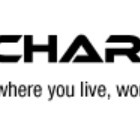Legal
Anslow & Jaclin Calls It Quits
|
Anslow & Jaclin, the New Jersey law firm that was once one of the most active firms providing securities counsel to Chinese companies seeking to go public in the U.S. via reverse mergers, is dissolving after 20 years, according to partners Richard Anslow and Gregg Jaclin. The partners made announcement in private meetings with colleagues and clients attending the Rodman & Renshaw Global Investment Conference in New York from October 8-10. Each stressed the dissolution of the partnership was amicable and that both attorneys would remain active in securities practice for small cap companies. Anslow will be joining the New York-based firm Ellenoff, Grossman & Schole, while Jaclin is joining Lawrenceville, N.J.-based Szaferman, Lakind, Blumstein & Blader, effective October 1. In an interview, Rich Anslow said the decision to dissolve his partnership with Jaclin was a difficult one, but was necessitated by the precipitous decline in the Chinese reverse merger market.



